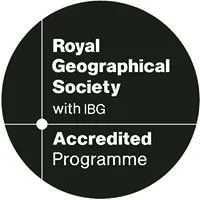Strand Campus
Strand Campus feels like the heart of London—historic yet buzzing with energy. Nestled by the Thames, it offers world-class academics, vibrant student life, and endless inspiration from the city’s culture and diversity.
Our Bachelor of Science (Hons) in Geography & Environmental Science offers an exciting course of study covering Physical Geography, the Environment, Spatial Data Science as well as interactions with Development, Urban and Cultural Geography.
You will learn advanced analytical and technical skills that can be applied to understanding a range of real-world issues, and graduate with a career-relevant set of skills, determined by your study pathway.
This course is primarily taught at the King’s College London Strand Campus, with occasional lectures and practical sessions taking place at the Waterloo Campus.
Please note that locations are determined by where each module is taught and may vary depending on the optional modules you select. Off-site study will take place at specific fieldtrip destinations. UK and International Residential fieldtrips take place at various locations and are continually reviewed and subject to change. We expect to run fieldtrips (subject to travel restrictions) with likely destinations including Tenerife, York and others.

Reviewed, inspected and accredited by the Royal Geographical Society (with IBG)

King's College London and Affiliates
Strand Campus feels like the heart of London—historic yet buzzing with energy. Nestled by the Thames, it offers world-class academics, vibrant student life, and endless inspiration from the city’s culture and diversity.
Our Waterloo campus is home to the Florence Nightingale Faculty Nursing & Midwifery, and a vibrant hub for health, social science, and law students. Located moments from the iconic landmarks of South Bank and just a short walk to the Stand campus.